Are you looking to support a fellow student by providing a peer mentorship recommendation? Writing a letter can shine a spotlight on their strengths and potential, showcasing their dedication and ability to inspire others. It's a thoughtful way to highlight their unique qualities, and your insights can make a significant impact on their journey. Dive into our article for tips and a comprehensive template that can help you craft the perfect recommendation!

Personal connection and relationship details
In any peer mentorship program, a strong personal connection between mentors and mentees greatly enhances the effectiveness of the experience. The relationship often begins with shared interests, such as academic fields like biology, technology, or the arts. Many mentors draw from experiences in similar educational journeys, having attended institutions like Stanford University or community colleges. Regular interactions through study sessions, skill-building workshops, or informal meetups foster trust and open communication. Key details of this relationship may include initiatives like collaborative projects or involvement in clubs, which help build rapport. As mentoring progresses, discussions about future aspirations, challenges faced, and strategies for overcoming obstacles are common, forming a robust support system. Additionally, the shared commitment to personal growth and development solidifies a lasting bond, often extending beyond the formal mentorship period, highlighting the impact of such relationships in educational settings.
Specific skills and competencies
Effective peer mentorship fosters significant personal growth through the development of specific skills and competencies essential in various environments. Interpersonal communication skills, critical in establishing rapport in mentoring relationships, enhance collaboration and understanding. Problem-solving abilities, cultivated through real-world challenges faced in peer interactions, equip individuals to navigate obstacles effectively. Time management competencies emerge as mentors balance academic responsibilities alongside mentoring commitments. Additionally, leadership qualities become evident as mentors guide peers through complex issues, fostering a sense of accountability and motivation. Ultimately, these skills not only advance individual capabilities but also contribute to creating a supportive and enriching learning environment.
Relevant achievements and contributions
Peer mentorship programs foster collaboration and personal growth among students in educational environments. Effective peer mentors demonstrate relevant achievements, such as maintaining a GPA of 3.8 or higher in challenging courses, serving on the student council to enhance student engagement (in specific schools like Lincoln High School), or volunteering in community service projects, such as local food drives in 2022. Contributions to the academic community include tutoring fellow students in advanced mathematics, leading study groups with a focus on effective learning strategies, and organizing workshops to promote mental well-being and resilience among peers. Noteworthy involvement in extracurricular activities, such as winning first place in the regional debate competition or participating in youth leadership programs, underscores a commitment to fostering a supportive and enriching learning environment.
Alignment with program or role values
Peer mentorship programs often emphasize collaboration, personal growth, and a commitment to fostering a supportive learning environment. Mentors and mentees alike should align with the core values of inclusivity, respect, and encouragement. A mentor's ability to listen actively and provide constructive feedback plays a vital role in creating a trusting relationship that enhances the learning experience. Demonstrating empathy and accountability can further reinforce the program's objectives of mutual development and shared success. Mentees benefit from mentors who exemplify these values, as they navigate challenges and seize opportunities for growth together.
Endorsement of character and work ethic
Peer mentorship can significantly impact personal and professional development, especially within collaborative environments like universities or workplaces. A strong recommendation showcases the individual's character, emphasizing attributes like integrity, reliability, and the ability to inspire others, fostering a supportive atmosphere. Additionally, highlighting work ethic through specific examples of dedication, commitment to team goals, and resilience in overcoming challenges reinforces their suitability for mentorship roles. Details such as involvement in projects, leadership in group activities, or contributions to community service enhance the credibility of the endorsement, painting a comprehensive picture of the individual's potential as a mentor.

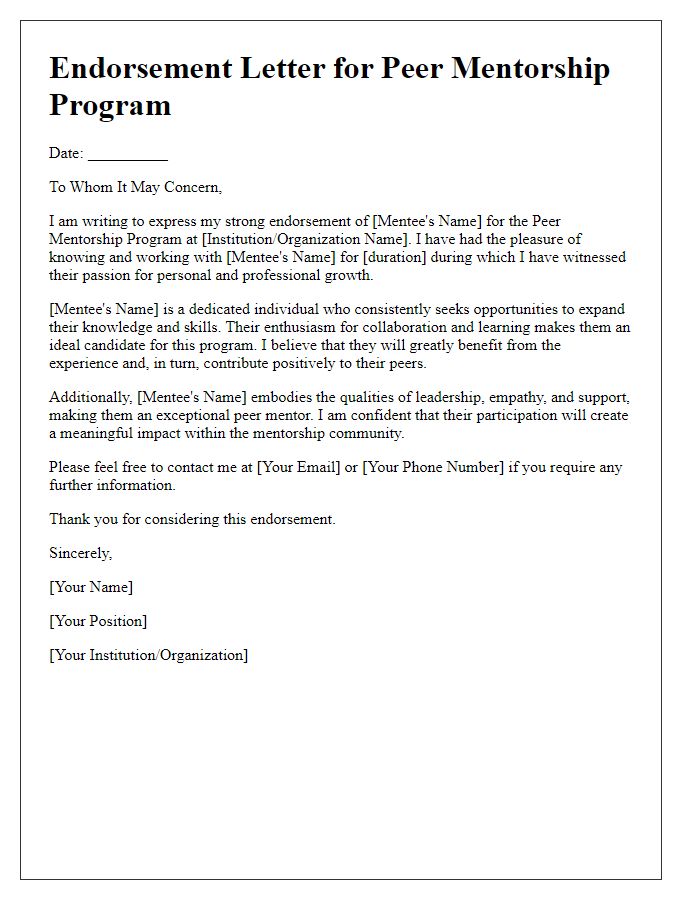
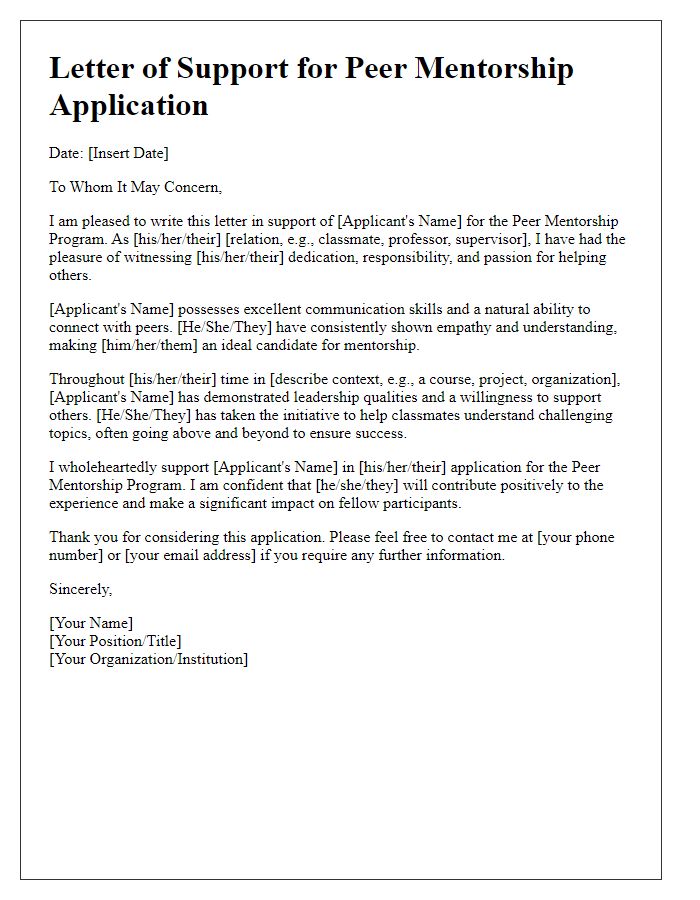
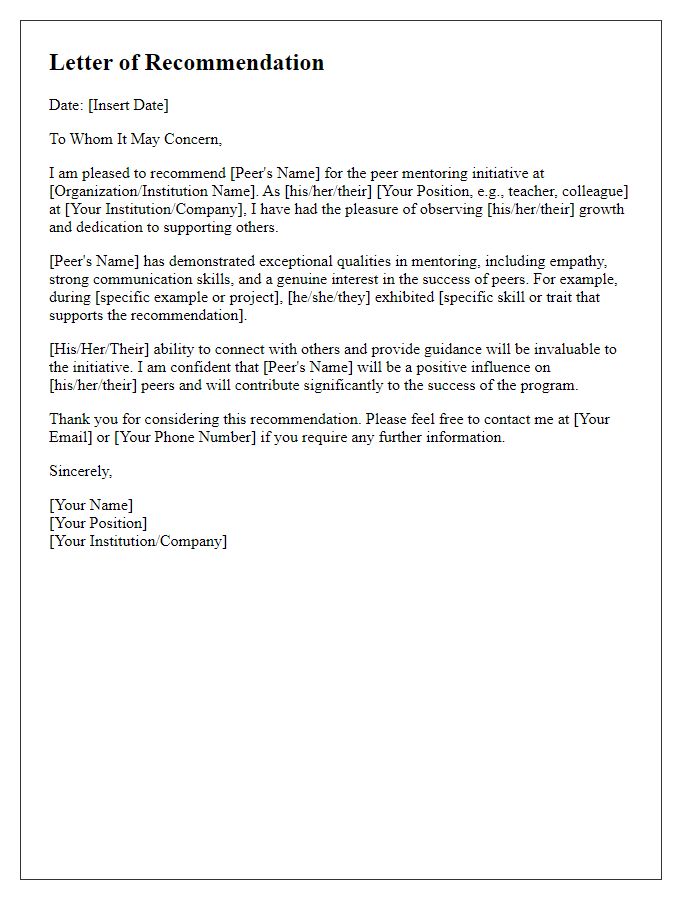
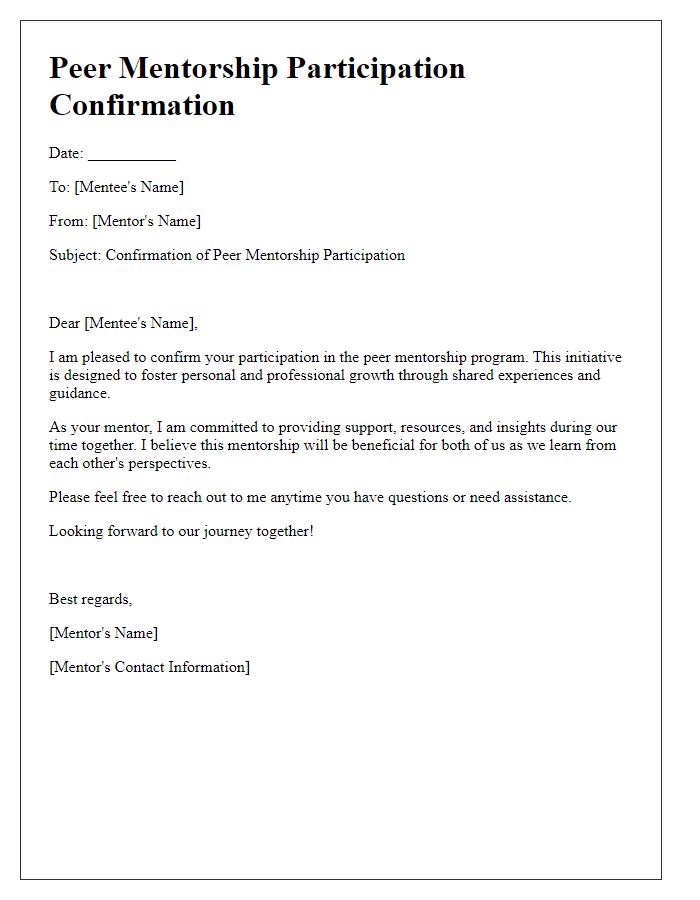
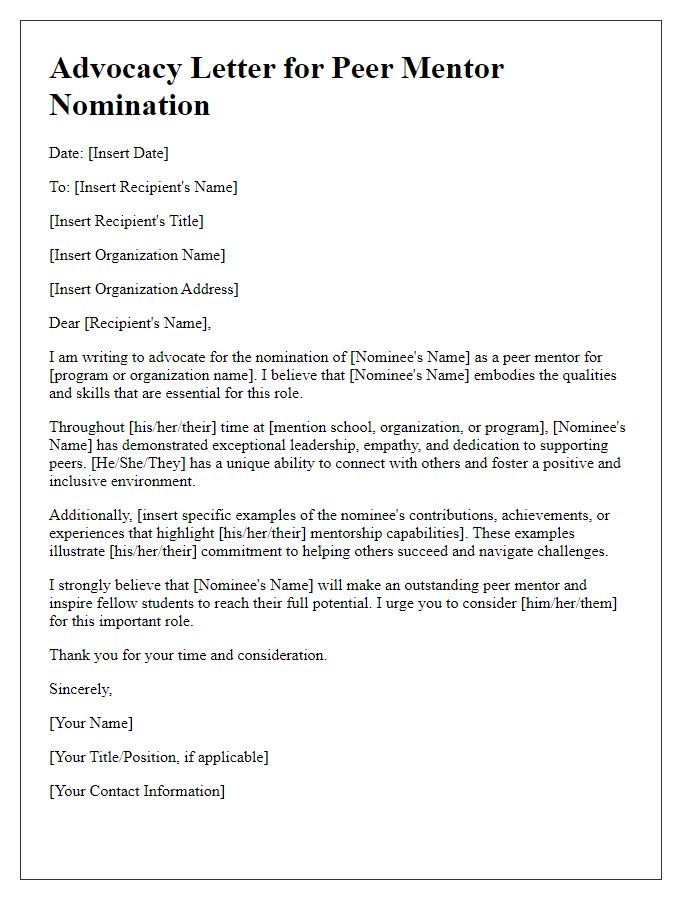
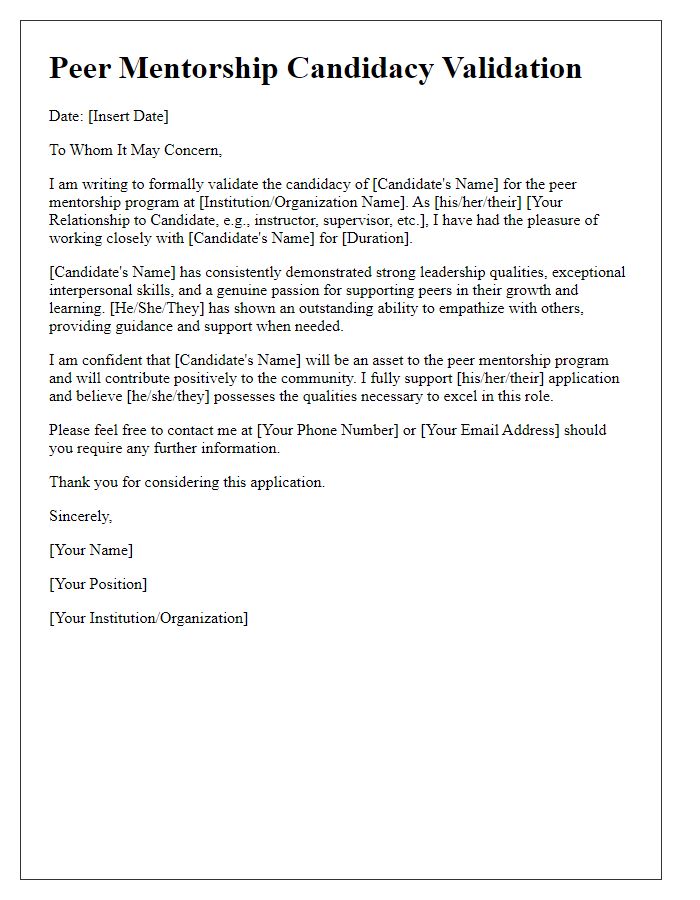
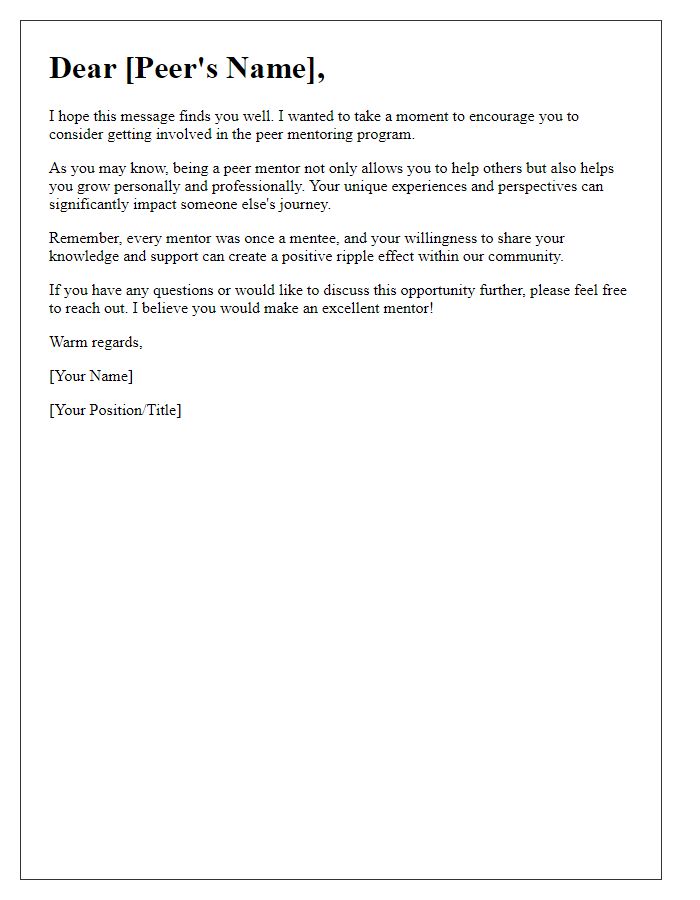
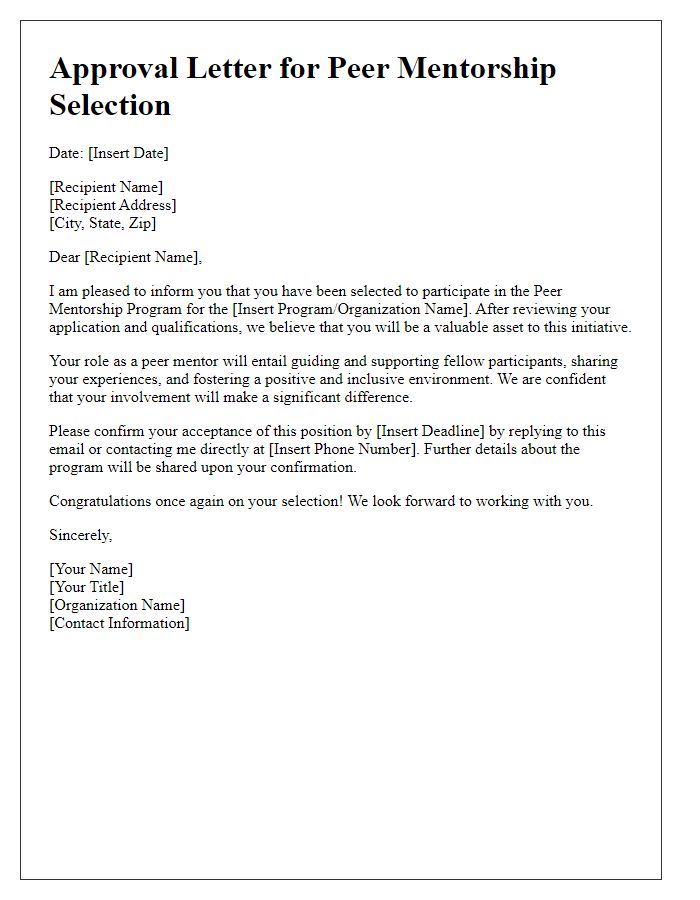
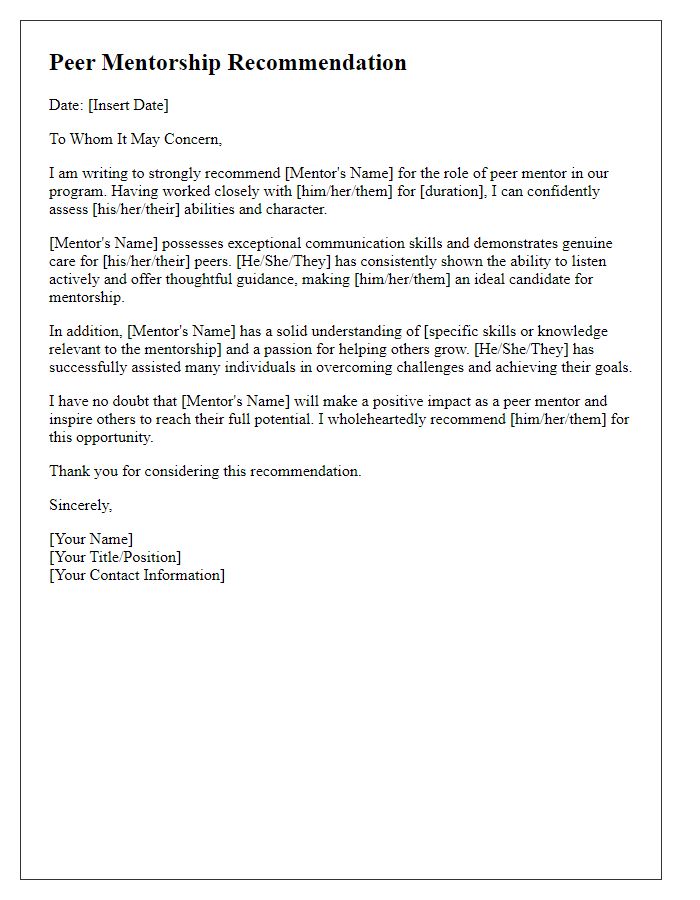
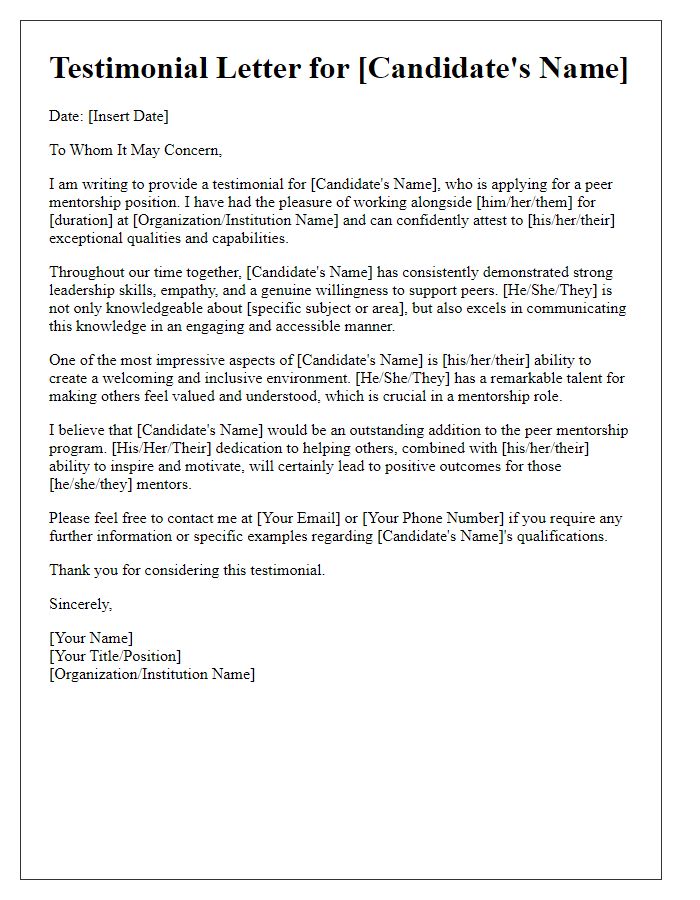


Comments